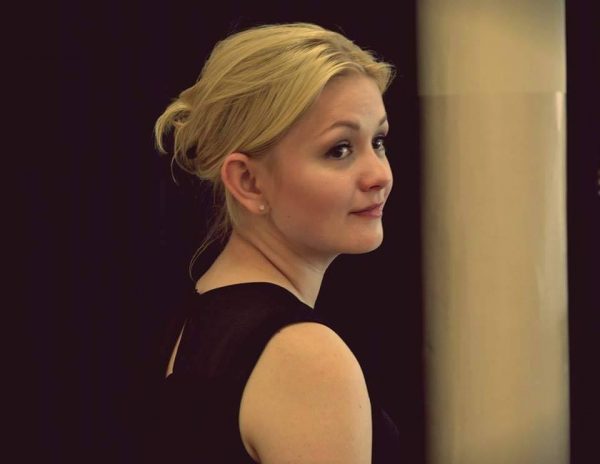The University of Silesia in Katowice, together with six universities from abroad, forms a prestigious European University as part of Transform4Europe alliance. Anna Rizzo, a doctoral student of the Doctoral School at the University of Silesia in Katowice in the field of law, took part in work on the project.
Olimpia Orządała: Why did you get involved in the implementation of Transform4Europe project?
Anna Rizzo: I was the Vice-Chair of the Student Government of the University of Silesia. I learnt about the preparations for the implementation of Transform4Europe project during a conversation with Prof. Tomasz Pietrzykowski, Vice-Rector for International and Domestic Cooperation. I decided to take part in the initiative. The subject of internationalisation is very important both for me, and for the University of Silesia, so I agreed to cooperate in the consortium.
O.O.: What do you think about the Transform4Europe project? What do you expect from it?
A.R.: The potential of the project is enormous. Although there are different and numerous internationalisation efforts, e.g. Erasmus+ programme addressed to students and academics, Transform4Europe allows for much closer cooperation between universities. In fact, we are becoming a “superuniversity”. This is not just about us, the University of Silesia, but about all universities in the consortium, which have become a unity. Our cooperation will be very close and at a high level. Academic exchange of students and the possibility to conduct e.g. one subject in cooperation with a number of universities is something extraordinary. These are options provided by the “superuniversity”, a new unit which has not been named yet.
O.O.: “Superuniversity” is an international campus.
A.R.: Yes. This is also one of Transform4Europe assumptions – to form an international campus. Our work on forming the consortium was in progress before the coronavirus pandemic, the global situation was different, but there were already the ideas to create an online platform where everyone could be part of one big academic family connecting students, doctoral students and employees of these seven universities.
O.O.: What can Transform4Europe project offer to students, doctoral students, employees and the University itself?
A.R.: I think that, apart from internationalisation, the project will allow the academic community to expand the intellectual horizons, because the universities which form the consortium are different. We have academies of art, classical universities, technical universities, which allows us to create interdisciplinary scientific bonds.
O.O.: The project also enables us to build the European identity.
A.R.: Definitely yes. This is the spirit of the project, although I prefer to look at more down-to-earth things that could bring the concept of Transform4Europe closer to each member of our academic community. I think that in the future there will be more possibilities to make use of this international cooperation. First there were talks on forming the consortium, now the implementation work stage has begun, but it’s already worth talking about the project, so that we wait in tension and excitement for what Transform4Europe brings us in the future.
O.O.: What have you learnt thanks to working on the project so far?
A.R.: Patience [laughs]. When you cooperate with other people, you must learn to be more flexible. For me international cooperation is an inherent element of the academic life, but I’ve learnt to look at other people’s ideas in a more open-minded way.
O.O.: What sort of experience have you got when it comes to such type of cooperation?
A.R.: Already as a student I had the opportunity to cooperate with different universities and I made a lot of friends and acquaintances during numerous international conferences. Additionally, my dad is Italian and in fact I’ve never lived in a single place for too long. In my opinion, the concept of nationality is dying these days, because we are becoming inhabitants of the so-called global village. We can go abroad and get to know new people who are very similar to us, despite coming from different cultures.
O.O.: Why is it so important for students and doctoral students to get involved in Transform4Europe project? Can we say that thanks to it they will have impact on the future of Europe?
AR: Definitely yes. Such involvement influences the way we think about other countries and allows to overcome stereotypes that distort out perception of other nations. Transform4Europe gives the possibility of shorter mobilities, not necessarily semester-long, like in case of Erasmus+ programme. I think that it’s definitely important for students. A majority of us think that yes, we do need to know the language, but we see mobility as holiday. It’s worth getting to know people from other countries, who may bring a lot to our scientific life. Students and doctoral students may develop a lot if they are open to our consortium partners.
O.O.: How would you encourage other students and doctoral students to get involved in the implementation of goals related to Transform4Europe project?
A.R.: We only study once and it only depends on us how we use it. Nowadays, it doesn’t make sense to study just for the sake of studying: we need to do something more and get involved in all initiatives. I know that pro publico bono work is not currently popular, but gaining new skills and getting to know other people may give us a lot in our future job, which is something I found out many times. An entry in our CV saying that we have taken part in an international project shows that we are open to new challenges.
O.O.: Thank you for the interview.
Anna Rizzo is a doctoral student of the Doctoral School at the University of Silesia in Katowice in the field of law. She took part in the talks concerning the preparation of international project Transform4Europe, under which the University of Silesia, together with six other universities,, forms a prestigious European university. | Photo from the archive of A. Rizzo






